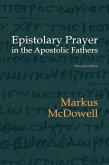Clement was a student of various philosophical schools, and his education was rooted deeply in Greek philosophy, particularly the Platonic and Stoic traditions. It is essential to note that while Clement's works reflect an intellectual engagement with these traditions, he did not view philosophy as an end in itself, but as a means of preparing the soul to receive the fullness of Christian revelation. In his writings, Clement presents a Christian pedagogy that is shaped by both intellectual rigor and spiritual formation. This pedagogical approach is founded on the assumption that true knowledge, or gnosis, leads the individual toward moral and spiritual growth, culminating in union with God. However, Clement viewed the human being as a composite of mind, body, and spirit, and for this reason, his educational model integrates not only intellectual instruction but also ethical and ascetic practices.
Dieser Download kann aus rechtlichen Gründen nur mit Rechnungsadresse in A, B, CY, CZ, D, DK, EW, E, FIN, F, GR, H, IRL, I, LT, L, LR, M, NL, PL, P, R, S, SLO, SK ausgeliefert werden.









